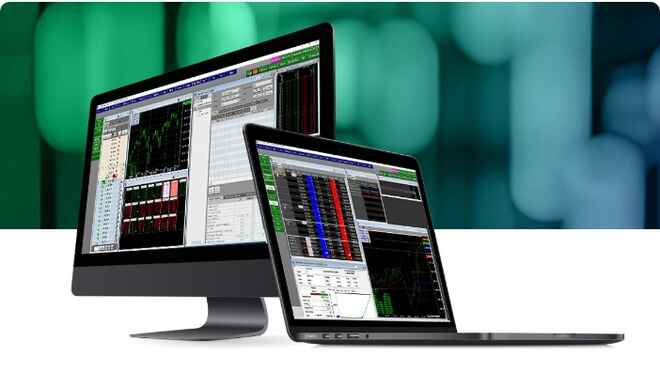According to the CME Group, Since the 90’s, ETFs and futures have been two of the most commonly traded assets across the globe. For example, according to the CME Group, the S&P 500 e-mini has gone on to be the most liquid stock futures contract in the world. Although ETFs and futures are often compared to each other, many investors will tell you that trading futures is the more favorable option. Before we get into why futures are a better option, we should first speak on what differentiates the two.
What Are ETFs
An ETF, according to the SEC, is a “SEC-registered investment company that offers investors a way to pool their money into a fund that invests in stocks, bonds or other assets”. Essentially, an ETF is combining the two main features of mutual funds and standard stock trading.
What Are Futures
Futures offer investors more control in what they are investing in. According to the CME Group, a futures contract is “an agreement to buy or sell a specific quantity of a commodity or financial instrument at a specified price on a particular date in the future.
What Are the Advantages of Futures Trading
Fee Structure
One of the major advantages to futures trading as opposed to ETFs is the lack of a management fee. When you purchase a futures contract, you pay no management fee throughout the life of the contract, while with ETFs you are usually charged a fee that equates to a small percentage of your balance, usually around .44% according to the Wall Street Journal. In addition to a management fee, there is usually a commission tacked on to each ETF trade, generally averaging around $15. For a small-time trader these fees can add up and eat at your bottom line.
Accessibility
Futures trade almost 24 hours a day, six days a week, while some ETFs offer after hours trading, but cannot be traded 24 hours a day. In 2019, when everybody is on the go and accessibility is key, futures remain king.
Liquidity
Another factor to keep in mind when deciding to between futures and ETFs is the liquidity of each investment. When talking about investing and the stock market, liquidity refers to ability an asset has to be quickly bought and sold in the market. The more liquid an asset is, the quicker it can be bought and sold and bring immediate monetary value to its owner. While ETFs offer good liquidity, it does not offer as much substance as a futures contract, meaning the ETF market cannot support as quick of a turnaround from buying to selling as the futures market. Futures contracts are all made in “far-out trade in dollar terms” and offer much more substance than an ETF. For instance, because futures are traded so broadly and in such mass quantities, owning a futures contract allows you to buy or sell that contract on an almost instant basis. The market has so much volume and money it, it can support this type of action, where an ETF may not be able to.
Tax Benefits
Trading futures contracts also offers advantageous tax benefits. According to IRS Section 1256, a profitable short-term futures trade will pay less taxes than an ETF. According to Investopedia, a futures dividend is treated for tax purposed as 60% long-term, and 40% short-term, which is a blended tax. 40% of your gains are taxed at 35% and 60% of your gains are taxed at 15% which averages out to a 23% tax. ETFs on the other hand, are subject to ordinary income tax rates and those can add up quickly and eat out some of your gains. Futures contracts greatly outpace ETFs across the globe, partly because they have something to offer to every type of trader, big, small, or in between. When one looks at the average daily volume of futures in comparison with ETFs, they will see that treasuries, crude oil, and gold all trade roughly 20-600 times larger dollar value than ETFs. In fact, according to the CME Group, the E-mini S&P 500 futures contract out trades all ETFs combined by 2.56 times.
Leverage
With futures you can control more of a commodity like gold or corn etc. than you can with ETFs. This ability to control more of a commodity allows for ability to create increased gains. In order to see a net gain in ETFs you have to see a LOT of movement in the price, which is rare. In futures, because you can own such a large volume of a commodity, you don’t need to see as much of a movement to create a net gain. Of course, this does swing back the other way, making it easier to lose money when owning futures. Futures also track closer to the underlying product than ETFs. For example, an oil company’s stock will rise and fall with the price of oil, but there are other outlying factors that affect the stock price as well, thus creating large variance in how an ETF tracks to the underlying stock. Neither futures or ETFs track at a 1:1 ratio, but futures come darn close and that provides more stability. After researching both ETFs and futures, it is very clear that futures are the more attractive option. ETFs while convenient, do not offer nearly the amount of benefits that futures do. Futures allow you to control more of a commodity, provide appealing tax benefits, have more liquidity to them allowing for instant buying and selling, are much more accessible, and offer a more affordable option due to the lack of fees. Futures contracts nearly double the volume of ETFs and with benefits like these, it’s not hard to see why.

